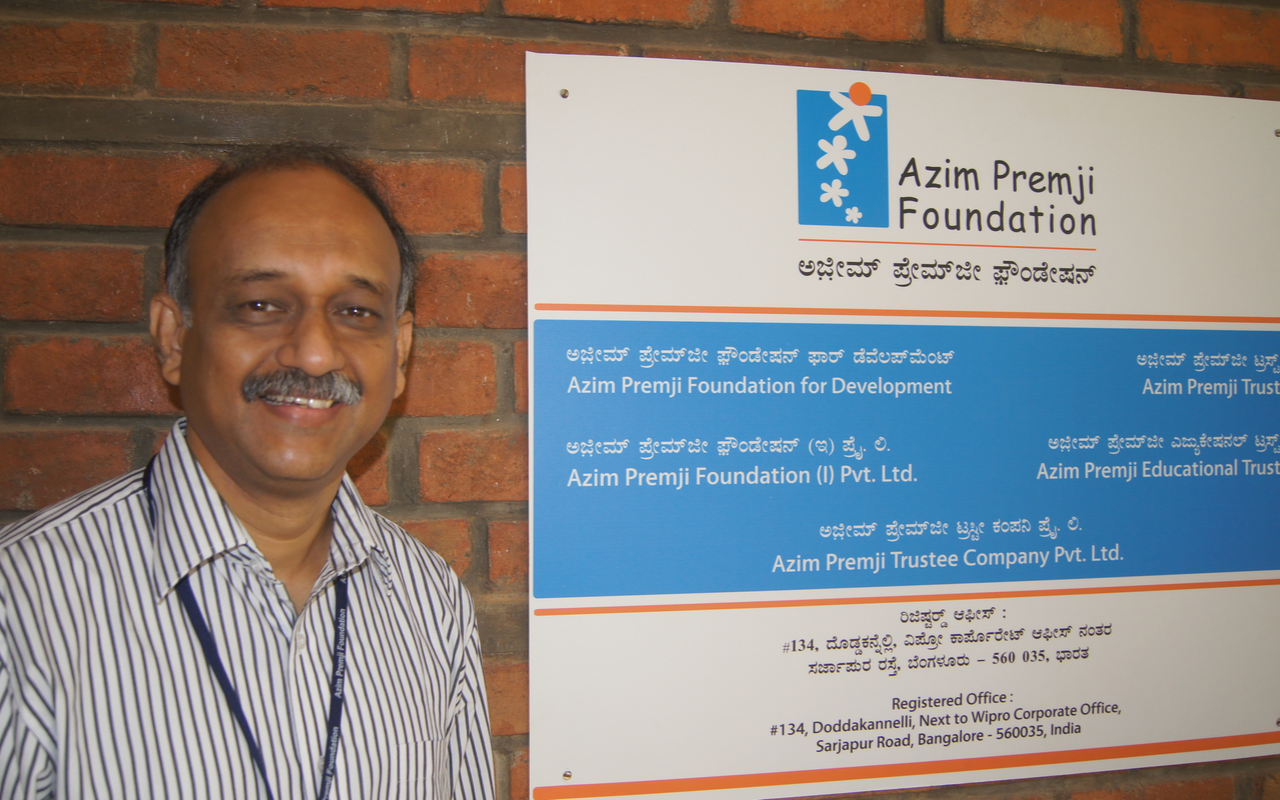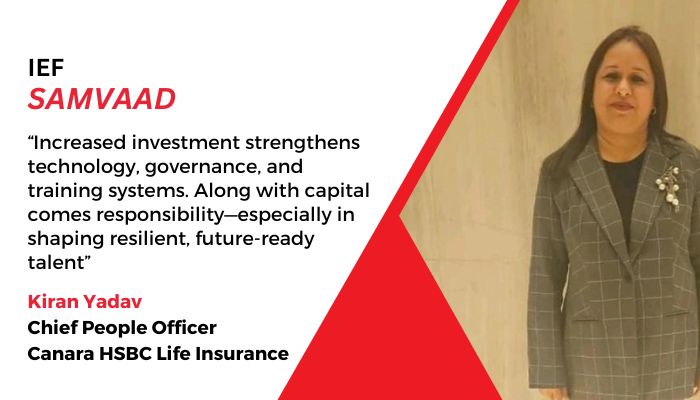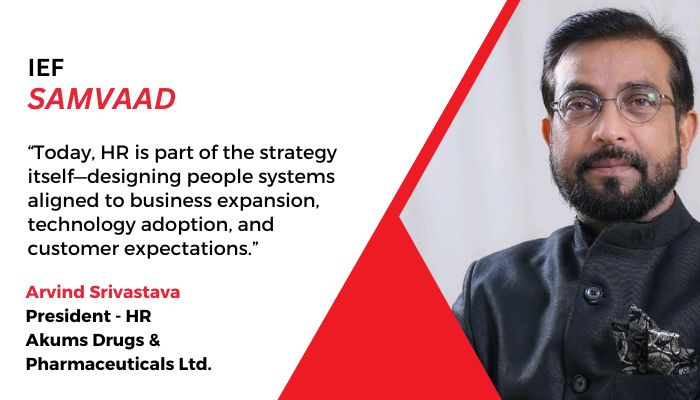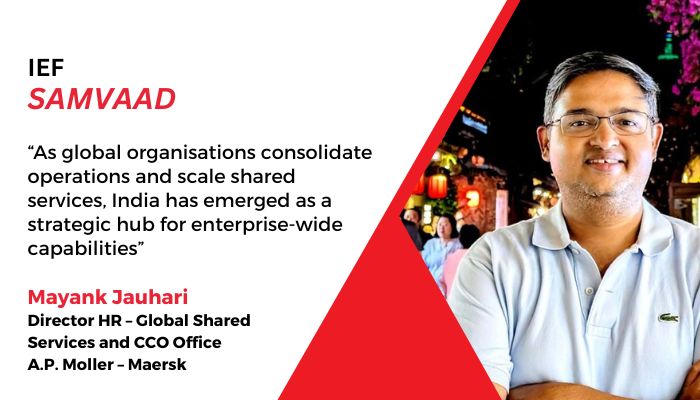Sudheesh Venkatesh, Chief People Officer of Azim Premji Foundation, clearly feels that across sectors employees will seek freedom, trust and flexibility
Q. Tell us briefly about yourself, your career and key achievements and awards.
I started my career with Asian Paints in sales and operations and later took a cross-functional shift to the HR function. Starting with Learning & Development, I later worked on executive recruitment, people policies and compensation and benefits. I was part of a joint assignment with Booz.Allen & Hamilton (now Strategy&) on organization design and people strategy. After a decade with Asian Paints, I moved to a technology start-up (now Brillio) in Bangalore as their Head of Human Resources. After a few years there, I joined the British retailer Tesco, as the Head of Human Resources and helped set up the shared services centre in India. After a reasonably long stint at Tesco India, I was responsible for a brief while for Tesco UK’s People & Payroll program. I have since moved to Azim Premji Foundation and worked here for the past nine years as its Chief People Officer and am on the Board of Management of Azim Premji University.
Q. What are your learnings?
My learnings have been several but the top three are:
- HR is a tight rope walk. Expectations from the function vary widely across stakeholders and it is never easy to please everyone. A way to be accepted and carry influence is to be authentic, apolitical and by keeping the organization’s interest at the centre of all decisions.
- People will flourish in their careers, so long as they give more than they take.
- Trust and respect people. It builds relationships on a sound footing and makes us effective in the long run.
You might also be interested to read: ‘We Are In The Business Of Building The Future Of India’ – Shailesh Pathak, CEO, L&T Infrastructure Development Projects Ltd.
Q. What has been a major challenge for you in your career as an HR professional?
HR is often seen (wrongly) as something that doesn’t require deep specialization or skills. There can be nothing further from the truth. Evolved leaders understand this, some unfortunately don’t. Of course, issues like downsizing can be gut-wrenching and are part of any HR professional’s career.
Q. What are the key forces shaping the future of work and the world of jobs?
I would summarize them as follows:
- Jobless growth – too many people chasing too few jobs, desperate fight to save jobs, inequity and wage depression
- Diversity in the workforce – age, ethnicity, aspirations. Aspirations and motivations of a younger workforce – drivers are different
- Measuring contribution, impact and value add – modes are changing
- Technology is impacting jobs in ways beyond what any of us can imagine
Q. What role do you think social media will play in the future of the workplace?
- Social media has and will continue to shrink geographies – thereby providing access to talent / jobs across the globe. It will play a significant role in engaging potential candidates. Employers will ‘talk’ to potential hires largely through social media. Employers will strive to build an engaging image to attract the right talent. At the same time employers also have a lot of information about a potential candidate at their fingertips. There will always be too much information in the age of social media.
- Social networks have also started replacing in-person networking.
- In an era of trial by social media, it will therefore become increasingly critical for organizations to have consistent, transparent and fair practices.
- Different social networks (internal networks) will build a sense of community in the organization.
Q. How does one ensure quality of hires? Today, we see people everywhere but employability remains elusive, why?
Improvement in overall input quality needs fundamental changes in education and skilling. The challenge with India is that quality drops off asymptotically – in other words, the top 2% will be very good and the rest will be far below satisfactory. So, as recruiters it is key to understand talent pools, what to look for in candidates that can guarantee a higher percentage of success and then make a compelling proposition that chosen candidates will not reject.
Employability remains unsatisfactory for several reasons. Education needs to shift away from rote memorization and instead develop analysis, reasoning and communication in students. Vocational skills will need to be emphasized and respected more. Industry will need to actively participate in the development of the people pipeline and not just lament about poor quality.
Q. How different are millennials in the social and education sector as compared to the corporate sector? Does one need a different approach to work with them?
- Millennials are largely driven to the cause of the organization rather than the organization itself. Millennials are most likely to give their time if they know their efforts will make a tangible difference. They prefer to get “hands on” with causes they care about.
- When working with the millennials social sector organizations have to ensure that they walk the talk because millennials will constantly challenge an organization’s belief system. Much of it remains same across sectors, millennials across sectors will seek freedom, trust, flexibility and value.
- The social sector has also evolved and has responded to these changes. Large structured organizations like Azim Premji Foundation offer a breadth of roles, challenging experiences and at the same time job security.
Q. You have been a past President of NHRD Bangalore chapter. You have also been into writing? How do you prioritize life beyond work?
I have a pie chart of life that has five segments – work, family, fitness, finances and a few interests ( e.g., listening to and learning from experts, keeping in touch with my professional network, writing for the press). I try to ensure that I have adequate time for these. I keep other distractions to the minimum. I understand that this approach will mean that I am not going the whole hog on any one dimension, but I think this balance has helped me in the long run.
Q. How should new gen HR professionals keep themselves updated and relevant?
- Forget the industry as it was five years ago. Technology will change, business models will change, connectivity will evolve – always look at the future possibilities –anticipate and ride on change
- Moral compass – While the basics remain the same, tune your perceptions and beliefs to the emerging world. Be the conscience keeper in a turbulent world
- Prioritize and work on the vital few
About Sudheesh Venkatesh
Sudheesh Venkatesh is the Chief People Officer of Azim Premji Foundation and is on the Board of Management of Azim Premji University. The Foundation works to improve the quality of elementary education of underprivileged children in India.
Sudheesh is the Regional President – South of National HRD Network. He co-edited the Jan 2018 National HRD Network journal on ‘Education, Employability & Employment – the triple challenge for India’.
Sudheesh holds a degree in Electronics & Communication Engineering and a Postgraduate degree in Management from the Indian Institute of Management, Kolkata.






